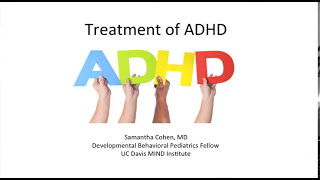An “alarming number” of preschoolers are prescribed medication to treat hyperactivity, despite medical guidelines stating that they shouldn’t be used for children under the age of six. This is because overstretched healthcare workers prefer to prescribe medication instead of psychological interventions.
The National Institute for Health and Clinical Excellence recommends that psychological interventions be tried before medication. However, more than a fifth (25%) of educational psychologists know of children in preschool who have been given Ritalin.
The survey also revealed that there is an “intolerance for difference” and children who do not conform to the norm are increasingly viewed as being abnormal.
The study was conducted by the University College London Institute of Education and the British Psychological Society. One educational psychologist, who participated in the study, wrote that “our biggest problem is that children and adolescents’ mental health services are so understaffed, they just go straight to medication, and ignore Nice advice.”
Ritalin is the most common trade name for methylphenidate. It is a central nervous system stimulant that is used to treat attention deficit disorder (ADD) or attention deficit hyperactivity disorder (ADHD).
Nice guidelines were revised in 2013 and state that “parent-training/education programs are first-line treatments for parents or caregivers of preschoolers with ADHD… Drug treatment for preschoolers with ADHD is not recommended.”
The results are part of an online survey that surveyed 136 educational psychology professionals from 70 local authorities in the UK to get their opinions on ADHD diagnosis, assessment, and treatment.
The report concluded that medication was viewed as the primary solution for treating ADHD. The report stated that “medication was deemed to be the most effective form of treatment in ADHD, despite Nice guidelines recommending psychological interventions first.”
Multiple systemic factors were causing “pressure to increase rates of diagnosis and medications”.
The survey will be published in full next year. It stated that there is an urgent need to examine the local policies for effective prevention and interventions of cases of preschool behavioral, emotional, and social difficulties.
Vivian Hill is the director of professional training in educational psychology at the IoE. She conducted the research along with Horatio T. Turner from UCL.
It is almost certain that it is because the entire system of mental health services for children is underfunded. It is quick and simple – just remove one name from the waiting list.
“Working with a child, adolescent, and their families over time will be more expensive but safer and produce better results. Medication only has a temporary impact. “It will not make a difference in the long term.”
The survey revealed that “tolerance of differences” affected how adults perceived children’s behavior and learning. One participant wrote: “There’s a growing view in the society that people who don’t fit into a certain environment have something wrong with themselves.”
According to the report, environmental factors are not given enough attention, but rather “within child” factors. This is because “families and schools want to abdicate their responsibility for children’s behavior and there are systemic failures in current diagnosis procedures”. Participants said that it is a convenient, comforting explanation that absolves all of the blame by placing the problem on the child.
Education psychologists expressed frustration at the factors that limit their ability to effectively care for children with ADHD. When we get involved, the problem is so pronounced that medication is the only solution.
The report recommended that educational psychologists be involved in developing a broader understanding of the contextual perspectives of ADHD within families, and also suggested a multi-agency treatment and assessment approach.
After its introduction, one participant said that the behavioral observations by an educational psychologist led to a significant drop in the diagnosis of ADHD and the medication prescribed.
A Department of Health spokesperson said: “Prescription decisions are up to doctors, but there are independent guidelines for treating ADHD that only recommend drugs for severe cases or as part of an overall treatment plan.
“Children’s mental health is an important priority. That’s why we formed a task force that will look at ways to provide the best care possible and invested PS54m to improve access to psychological treatment.”
Final Thoughts
It is easy to understand how ADHD medication affects your child’s performance at school. It is comforting to know that ADHD affects so many areas of a child’s life. Medication has proven to be effective in reducing the symptoms that interfere with proper education. read more: buy adderall online
Parents of ADHD children are often hesitant to put their kids on medication. According to WebMD’s information, ADHD medications are safe and can help children when taken as prescribed.
Other Treatments
FDA offers two non-drug therapies for children that are based on technology.
First, there is a device that is called the Monarch eTNS System. It is suitable for children aged 7-12. The device is similar in size to a mobile phone. It works by sending mild stimulation through electrodes placed on the forehead. These mild electrical pulses are believed to interact with the area of the brain that is responsible for ADHD.
EndeavorRx, a digital game-based therapeutic device for children with ADHD aged 8-12 years old, has also been approved. The device uses a video-game-based approach to target brain areas and improve cognitive function. It also includes sensory stimuli.
Omega-3 supplements have also been shown to help some children who suffer from ADHD.
Changes in diet such as gluten-free eating or avoiding certain foods may be beneficial for some kids with ADHD. Certain food dyes and other additives. Consult your doctor to determine the best option for your child.
